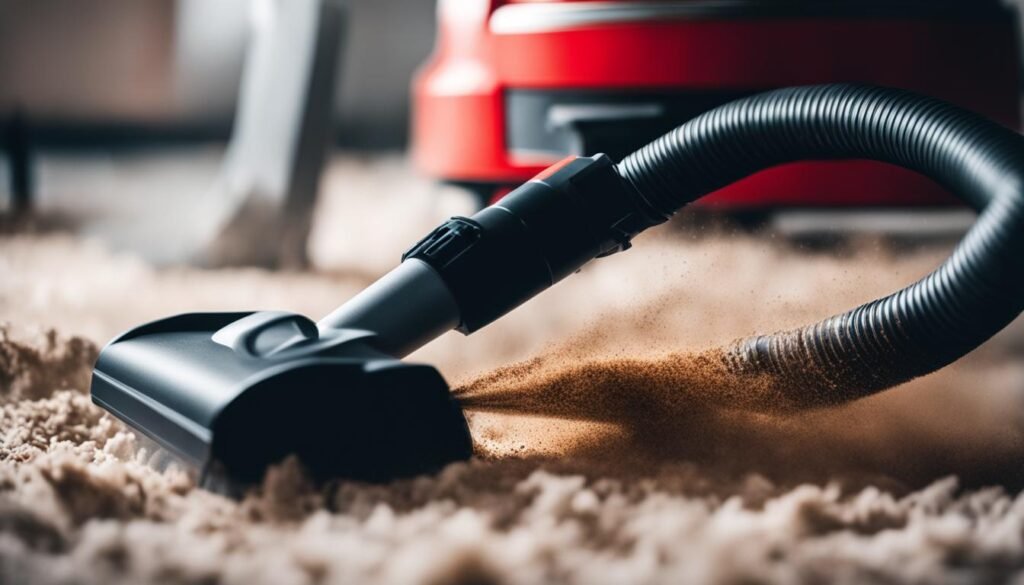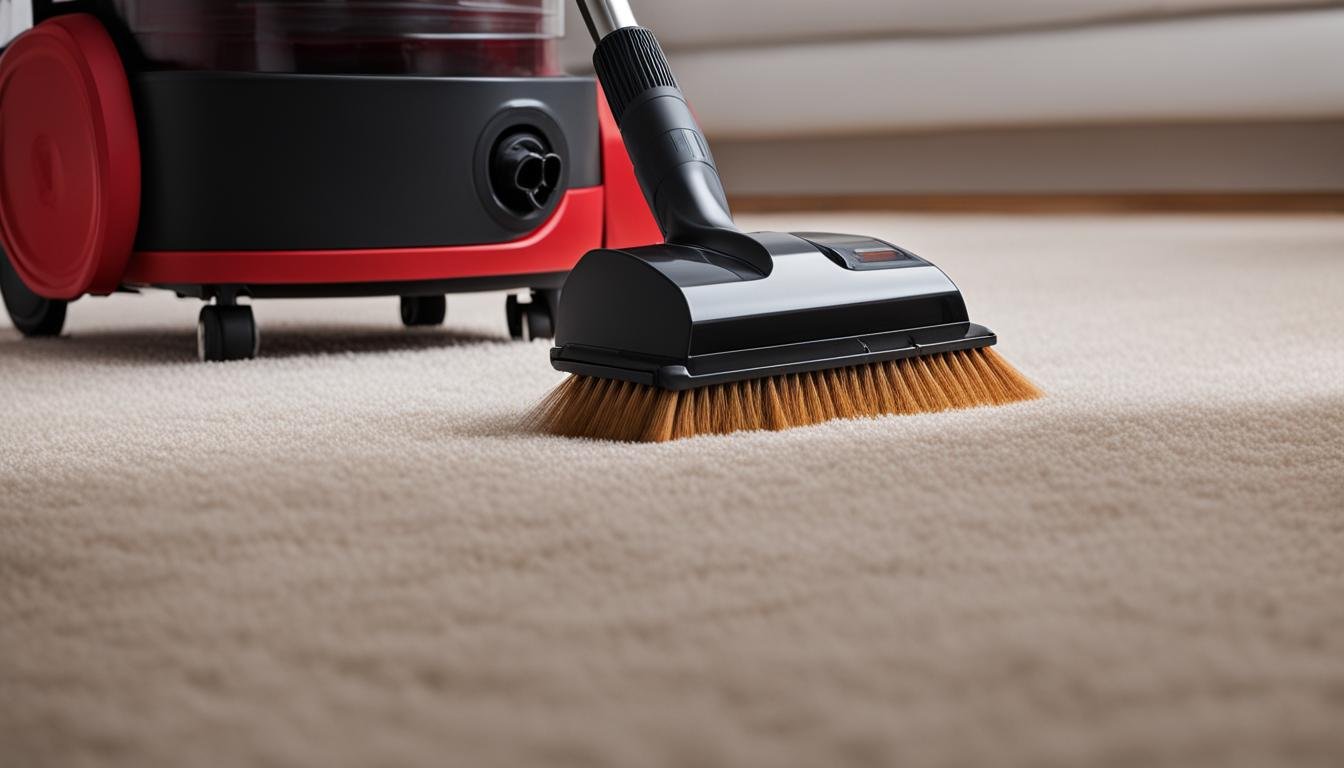Have you ever wondered how long your vacuum cleaner can run continuously without causing any harm? Many people are unsure about the maximum run time of a vacuum cleaner, and whether there are any specific guidelines to follow. In this article, I will explore this topic and provide you with some valuable insights.
When it comes to how long a vacuum cleaner can run continuously, there is no definitive answer. According to discussions on an online forum, there doesn’t appear to be a recommended time limit for using a vacuum cleaner. One user mentioned that during their time at Electrolux, the prototype and test machines had to run a minimum of 500 hours continuously, with some machines running up to 700 hours or even double that. This indicates that vacuum cleaners are designed to handle extended periods of operation.
Another important factor to consider is the temperature of the vacuum motor. One user explained that a vacuum motor is hottest right after it’s switched off, as there is no air running through it to cool it down. As long as the bag is not overfull and the filters are clean, it should not harm the machine to run it for an extended period of time.
Key Takeaways:
- There is no specific time limit for how long a vacuum cleaner can run continuously.
- Prototype and test machines have been run for a minimum of 500 hours continuously, indicating their capability for extended operation.
- As long as the bag is not overfull and the filters are clean, it should not harm the machine to run it for an extended period of time.
- Regular maintenance, such as emptying the bag or dust bin and checking for blockages, is essential for optimal performance.
- It is recommended to avoid vacuuming up hard objects and to refrain from using a regular vacuum cleaner to pick up liquids.
Factors to Consider for Vacuum Cleaner Run Time
While there may not be a specific time limit for how long a vacuum cleaner can run continuously, there are some factors to consider. It is important to ensure that the bag or dust bin is not overfilled and that the filters are clean, as these can affect the performance and longevity of the machine.
One of the key considerations for prolonged use of a vacuum cleaner is to avoid vacuuming up hard objects such as coins or stones. These objects can cause damage to the interior components of the machine and impede its continuous operation.
Regular maintenance practices play a crucial role in ensuring uninterrupted use of a vacuum cleaner. Emptying the bag or dust bin on a regular basis is essential to prevent any reduction in the machine’s cleaning efficiency. Similarly, checking for any blockages that might obstruct the airflow is important to maintain optimal performance.
By taking these factors into account, you can prolong the runtime of your vacuum cleaner and enjoy uninterrupted cleaning sessions.
Proper Maintenance for Prolonged Vacuum Cleaner Operation
- Regularly check and empty the bag or dust bin to prevent overfilling and maintain optimal performance.
- Ensure the filters are clean to ensure proper airflow and maximum suction power.
- Avoid vacuuming up hard objects such as coins or stones, as they can damage the interior components.
- Check for any blockages in the hoses or brush roll to maintain uninterrupted airflow.
- Store and handle the vacuum cleaner with care to prevent any physical damage that may affect its operation.
Proper maintenance is key to prolonging the life and continuous operation of your vacuum cleaner. Taking a few minutes to address these maintenance tasks will ensure optimal performance and longevity.
Common Mistakes to Avoid with Vacuum Cleaners
When it comes to running a vacuum cleaner nonstop or for extended periods, it’s important to be aware of common mistakes that can potentially damage your machine and shorten its lifespan. By avoiding these errors, you can ensure that your vacuum cleaner operates efficiently for years to come.
1. Running Over Hard Objects
“Oops! What was that noise?”
Running your vacuum cleaner over hard objects like coins, pebbles, or small toys can cause serious damage to the interior components of the machine. The motor, brushes, or other delicate parts may get jammed or broken, resulting in expensive repairs or even the need for a new vacuum cleaner.
2. Avoid Vacuuming Liquids
“Oops! Did I just ruin my vacuum?”
Avoid using a regular vacuum cleaner to pick up liquids or wet spills. Most vacuum cleaners are not designed for this purpose, and the moisture can damage the electrical components, cause mold or mildew growth, and create potential safety hazards. If you need to clean up liquids, consider using a specialized wet/dry vacuum instead.
3. Regularly Empty the Bag or Dust Bin
“Is it just me, or is my vacuum losing suction?”
Regularly emptying the bag or dust bin of your vacuum cleaner is essential to maintain optimal performance. A full bag or bin can restrict airflow, reduce suction power, and strain the motor. Additionally, accumulated debris can cause overheating issues, potentially damaging the machine.
4. Avoid Running Over Electrical Cords
“Oops! That was close!”
Be cautious and avoid running your vacuum cleaner over electrical cords. The cords can get tangled, causing damage to both the cord and the vacuum cleaner. Furthermore, accidentally damaging an electrical cord can pose safety risks, including electrical shock or fire hazards.
5. Address Dust Bin or Blockage Issues
“Why did my vacuum suddenly stop working?”
If your vacuum cleaner suddenly turns off during use, it may be due to a full dust bin or a blockage. Before considering replacing the machine, inspect the dust bin, empty it if needed, and check for any obstructions in the hose or brush roll. Resolving these issues can help prevent further damage and ensure uninterrupted vacuuming.
By avoiding these common mistakes and following proper vacuum cleaner usage practices, you can maximize its longevity and maintain its optimal performance.

Conclusion
In conclusion, while there is no specific time limit for how long a vacuum cleaner can run continuously, taking care of its maintenance and following proper usage practices can significantly prolong its lifespan. Regularly emptying the bag or dust bin and checking for any blockages are essential steps to ensure optimal performance. Additionally, it is crucial to avoid running the vacuum cleaner over hard objects or liquids as they can cause damage to the machine’s interior.
By adhering to these tips for vacuum cleaner maintenance, you can enhance its longevity and keep it in good condition for years to come. Taking proactive measures and being mindful of your vacuum cleaner’s performance can save you from the inconvenience of frequent repairs or having to replace the machine altogether. Remember, a well-maintained vacuum cleaner is key to effectively keeping your home clean and fresh.
For a cleaner and healthier home environment, invest a little time and effort in the maintenance of your vacuum cleaner. With proper care and attention, your vacuum cleaner will continue to be a reliable cleaning tool, delivering excellent performance and longevity that you can depend on.
FAQ
How long can a vacuum cleaner run continuously?
According to discussions on an online forum, there doesn’t appear to be a recommended time limit for using a vacuum cleaner. One user mentioned that when working at Electrolux, the prototype and test machines had to run a minimum of 500 hours continuously, with some machines running up to 700 hours or even double that. Another user explained that a vacuum motor is hottest right after it’s switched off, as there is no air running through it to cool it down. As long as the bag is not over full and the filters are clean, it should not harm the machine to run it for an extended period of time.
What factors should I consider for vacuum cleaner run time?
While there may not be a specific time limit for how long a vacuum cleaner can run continuously, there are some factors to consider. It is important to ensure that the bag or dust bin is not overfilled and that the filters are clean, as these can affect the performance and longevity of the machine. Additionally, it is recommended to avoid vacuuming up hard objects, such as coins or stones, as these can cause damage to the interior of the machine. Regular maintenance, such as emptying the bag or dust bin and checking for blockages, can also help ensure optimal performance.
What common mistakes should I avoid with vacuum cleaners?
There are several actions that should be avoided with a vacuum cleaner to prevent damage and maintain its longevity. One common mistake is running the vacuum cleaner over hard objects, as this can cause serious damage to the interior of the machine. It is also important to avoid using a regular vacuum cleaner to pick up liquids, as this can pose a safety risk and damage the machine. Regularly emptying the bag or dust bin is crucial to prevent reduced performance and overheating. Running the vacuum cleaner over electrical cords should also be avoided, as this can cause damage to the cord and pose a safety risk. Finally, if the vacuum cleaner suddenly turns off during use, it may be due to a full dust bin or blockage, and these issues should be addressed before considering replacing the machine.
How can I ensure the longevity of my vacuum cleaner?
While there may not be a specific time limit for how long a vacuum cleaner can run continuously, proper maintenance and usage practices can help prolong its lifespan. Regularly emptying the bag or dust bin, checking for blockages, and avoiding running over hard objects or liquids are important steps for maintaining optimal performance. By following these tips, you can ensure that your vacuum cleaner remains in good condition and continues to effectively clean your home for years to come.





Leave a Reply